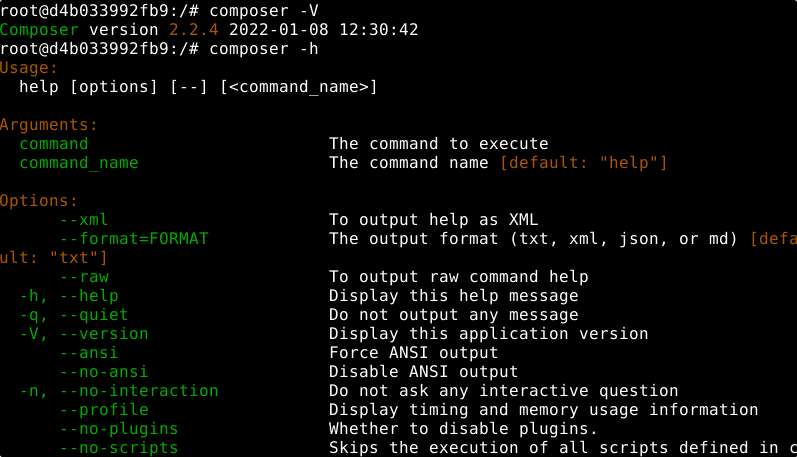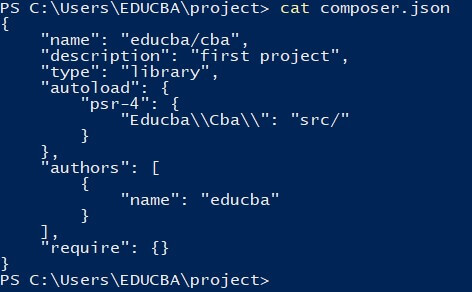So how did this miracle happen? Composer basically fixes the clusterfuck that was PHP dependency management before 2012. Instead of downloading random zip files and hoping they don't conflict, you describe what you need in a composer.json file and let Composer figure out the details.
What Actually Happens When You Run Composer

Here's the thing - when you run composer install, you're not just downloading one library. You're downloading that library, plus everything IT needs, plus everything THOSE things need, and so on. Then Composer has to figure out which versions actually work together without breaking everything.
The dependency resolver uses SAT solving algorithms to figure out which package versions can coexist. This is the same tech used by openSUSE's libzypp that Composer was originally ported from. When it can't find a solution, you get that classic "Your requirements could not be resolved" error. I spent a whole fucking afternoon debugging this once - turned out a random dev dependency required PHP 7.4 but the main package needed 8.0+. The error message? Completely useless.
Packagist - The PHP Package Goldmine

Packagist is where all the PHP packages live - hundreds of thousands of packages. That's a lot of code you don't have to write yourself. Some packages are absolute lifesavers, others are abandoned trash that will break your project in six months.
The packages that don't suck:
- Symfony components - Laravel steals half its code from here, and that's perfectly fine
- Laravel framework - The framework that made PHP cool again
- Monolog - For logging stuff so you can figure out what broke
- Guzzle - HTTP client that actually works (unlike cURL's bullshit)
- PHPUnit - Testing framework (you are writing tests, right?)
Autoloading - No More Include Hell

Before Composer, PHP was a mess of require_once and include_once statements everywhere. You'd have files with 50 includes at the top just to load your dependencies. It was like playing dependency jenga - move one include and everything falls down.
Composer generates an autoloader that follows PSR-4 standards. You include vendor/autoload.php once in your project and forget about it. Need a class? Composer finds it automatically. It's fucking magic compared to the old days.
Pro tip: if you're getting "Class not found" errors, run composer dump-autoload. I don't know why this works half the time, but it does. Fixes maybe 60% of weird autoloading issues. The other 40% you just delete vendor/ and reinstall like a caveman. For production, always use the --optimize-autoloader flag to generate class maps that speed up loading.
Version Constraints - Or How to Not Break Everything

Composer uses semantic versioning, which is great until package maintainers don't follow it properly. The constraint ^2.1.3 means "compatible with 2.1.3" - it'll accept any version from 2.1.3 up to 3.0.0. In theory, this should be safe. In reality, that minor version bump will break your project at 3am on a Friday. I watched our payment system go down because Carbon 2.64.0 broke date parsing in a "patch" release. Same thing happened when Symfony 6.4.0 changed the deprecation warnings - spent two days figuring out why our CI suddenly started failing with 500 deprecation notices.
The composer.lock file saves your ass by locking exact versions. When someone runs composer install, they get the exact same versions you tested with. Commit this file or suffer the consequences. I learned this the hard way when a new teammate got Laravel 8.4.2 while I had 8.4.1, and we spent 6 hours debugging why auth middleware was behaving differently.
Composer 2 - Finally Not Slow As Hell

Composer 2 came out in 2020 and holy shit, it's actually fast now. Composer 1 was painfully slow - I'd start an update and go grab lunch. Some projects took forever to resolve dependencies.
Composer 2 fixes this by:
- Parallel downloads - Downloads stuff at the same time instead of one-by-one like a caveman
- Better dependency resolver - Way faster at figuring out what works together
- Less memory hungry - Won't eat all your RAM like Composer 1 did
- Smarter caching - Remembers stuff so it doesn't have to download everything again
Real world difference: My old Laravel project went from 4-5 minute installs with Composer 1 to like 45 seconds with Composer 2. Still enough time to check Slack, but I don't need to grab lunch anymore.
Installation - The Easy Part

Installing Composer is actually straightforward, unlike everything that comes after:
System Requirements:
- Modern PHP (if you're still on PHP 5, we need to talk)
- Git (for pulling packages from GitHub)
- Enough RAM (Composer eats memory like Chrome)
Installation Methods:
- Download
composer.pharand pretend you understand what phar files are - Use the installer script (it's actually pretty good)
- Docker containers if you're into that
- Package managers (Homebrew, Chocolatey, whatever)
Memory Reality Check:
Here's the thing they don't tell you - Composer will eat all your RAM on cheap hosting. You'll see Fatal error: Allowed memory size exhausted and wonder what the hell happened. I once had a Symfony project that needed 1.5GB just to resolve dependencies. The hosting provider's 512MB limit? Yeah, that's not happening.
Solution: php -d memory_limit=2G composer.phar install. Your hosting provider will hate you, but it works. I've had to set it to 4G for some bloated enterprise projects. Better yet: use composer install --no-dev --optimize-autoloader in production and upgrade to hosting that doesn't suck. The official troubleshooting docs have more memory solutions if you're still stuck.
The tool is maintained by Nils Adermann and Jordi Boggiano, who somehow managed to solve PHP's dependency nightmare and deserve medals.
 Hell no. Never commit the
Hell no. Never commit the  Create a
Create a